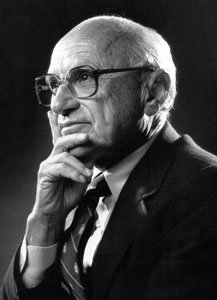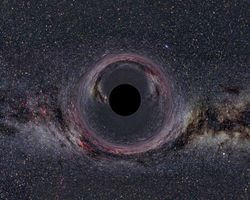Milton Friedman (July 31, 1912 - November 16, 2006) was an American economist who made major contributions to the fields of macroeconomics, microeconomics, economic history and statistics while advocating laissez-faire capitalism. In 1976, he won the Nobel Memorial Prize in Economics for his achievements in the fields of consumption analysis, monetary history and theory and for his demonstration of the complexity of stabilization policy.
Milton was an intellectual architect of the free-market policies of Republican US presidents, and an adviser to Margaret Thatcher when she was Prime Minister. Over half a century, Friedman, the son of Hungarian Jewish immigrants, established himself as arguably the most influential economic thinker of his time. Over that post-war period, 'Friedmanism' - the belief that changes in money supply dictate fluctuations in the economy - supplanted Keynesianism as the dominant economic philosophy of the industrial world.
Inflation, he believed, was caused by too much money chasing two few goods. Conversely, deflation was the result of too little money in the economy. He argued that the Depression was not a failure of capitalism, but of government, as the monetary authorities in the US and Europe reduced liquidity in the system, thus making a bad situation worse.


